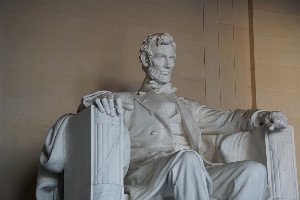Lidwina Nesya Candra, Dian Yuni Pamuji, Nailur Rahmawati, Almira Agwinanda
Character Education Values Analysis on The Chinese Reality Show “Where Are We Going, Dad?” Season Five
Introduction
Character education values analysis on the chinese reality show “where are we going, dad?” season five. Analyzes character education values in the Chinese reality show "Where Are We Going, Dad? S5," identifying moral knowledge, feeling, and action for child development.
Abstract
Parents as part of the family which is an informal educational environment are the first and foremost place to develop the foundation of a child's personality and as the foundation of character values in society so that children are able to become people who can internalize good values in their lives both for themselves and for society. The function of education can be disseminated through programs or information that contain teachings about values and ethics. Mass media has several functions, one of which is the function of education. Television as an educational medium can be seen from the educational messages packaged in television programs. Reality shows as a television broadcast program can be used as a medium and model for character education for children. Reality shows often use topics related to everyday reality, making them suitable as character education models for children. The purpose of this research is describe how reality shows “爸爸去哪儿” (Baba qù nǎr, Where Are We Going, Dad?) shows good character components of moral knowledge, moral feeling, and moral action according to Thomas Lickona. The research method used in this research is a qualitative research method with qualitative descriptive type. The data collection technique in this study used observation, note-taking, and documentation techniques. Data analysis techniques in this study were achieved by data condensation, data presentation, and drawing conclusions. On the reality show “爸爸去哪儿” (Baba qù nǎr, Where Are We Going, Dad?), found 40 scenes that show good character components according to Thomas Lickona. From the analysis results, 13 data were found that show components of moral knowledge, 17 data were found that show components of moral feelings, and 10 data were found that show components of moral action.
Review
This paper tackles a highly relevant and contemporary issue: the role of mass media, particularly reality television, in informal character education. The authors set out to analyze the popular Chinese reality show “Where Are We Going, Dad?” Season Five, specifically examining how it exemplifies components of character education according to Thomas Lickona's framework, which includes moral knowledge, moral feeling, and moral action. The chosen qualitative descriptive methodology, utilizing observation, note-taking, and documentation, appears appropriate for exploring the educational messages embedded within the program, aiming to describe how such content can serve as a model for children's character development. A key strength of this research lies in its clear theoretical foundation, explicitly employing Thomas Lickona's established framework, which provides a structured and widely accepted lens for analyzing character components. The choice of a popular Chinese reality show offers a compelling cultural context, highlighting the potential for entertainment media to transmit values in diverse settings. The study's systematic approach is further evidenced by the identification and quantification of 40 distinct scenes demonstrating good character, meticulously categorized into moral knowledge (13 scenes), moral feeling (17 scenes), and moral action (10 scenes). This initial data provides concrete indicators of the show's potential educational content and suggests a thorough preliminary analysis of the media. While the abstract provides a solid overview of the study's purpose and initial findings, a full paper would significantly benefit from a more profound qualitative exposition. The abstract primarily presents numerical counts of scenes, but for a qualitative descriptive study aiming to "describe how" character components are shown, richer illustrative examples, detailed scene analyses, or direct quotes would provide invaluable insights into the *nature* and *depth* of these educational messages. Furthermore, while Lickona's framework is universal, a discussion on how these character values are specifically contextualized or interpreted within a Chinese cultural lens would add considerable academic depth. Expanding on the implications of these findings for parents, educators, and media producers, beyond simply stating the presence of character components, would also enhance the paper's overall impact and contribution to the field.
Full Text
You need to be logged in to view the full text and Download file of this article - Character Education Values Analysis on The Chinese Reality Show “Where Are We Going, Dad?” Season Five from Longda Xiaokan: Journal of Mandarin Learning and Teaching .
Login to View Full Text And DownloadComments
You need to be logged in to post a comment.
Top Blogs by Rating
The Spiritual Shelf Life: Navi...
By Sciaria
Beyond the Blueprint: Why Your...
By Sciaria
Reclaim Your Day: Mastering th...
By Sciaria
Favorite Blog
Beyond the Forbidden: When His...
By Sciaria
Beyond Impatience: A Philosoph...
By Sciaria
Beyond the Charts: Unlocking S...
By Sciaria





